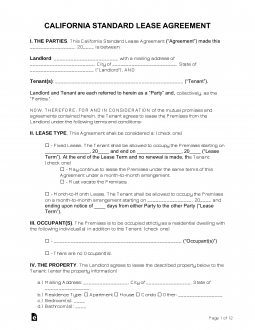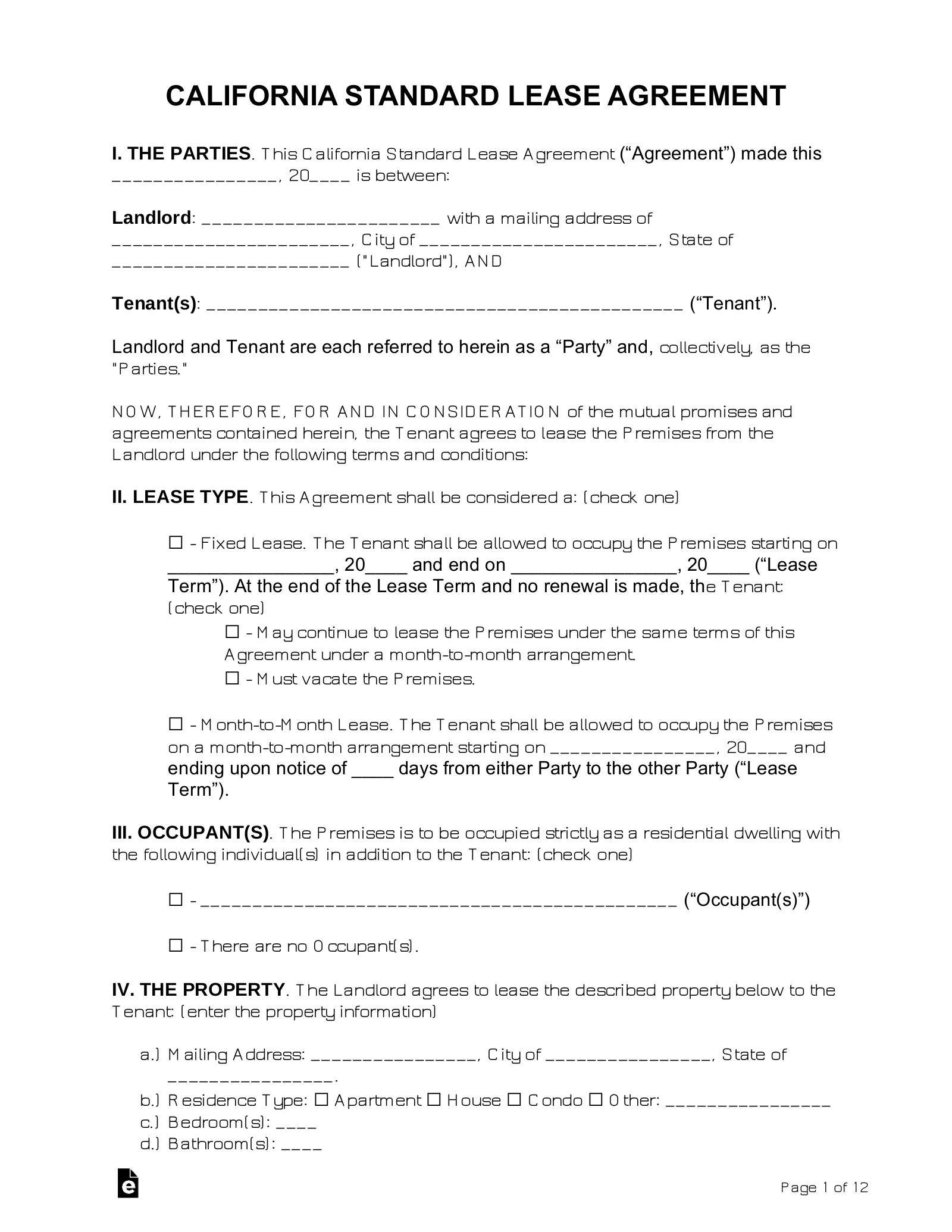Updated December 05, 2023
A California standard residential lease agreement is a fixed-term contract (start and end date) between a landlord that rents property to a tenant. During the term of the lease, the tenant is required to maintain the property and pay the monthly rent amount (typically on the 1st of each month).
Rental Application
A California rental application begins the process after the tenant views the property (which may require a fee). Afterward, the landlord will decide to approve or reject the tenant. If approved, the tenant will pay a security deposit and 1st month’s rent at the time of lease signing.


